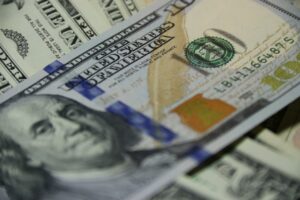The Impact of Political Unrest on Forex Trading in Algeria
Forex trading is a global market that operates 24 hours a day, where currencies are bought and sold. It is a highly volatile and dynamic market, influenced by a multitude of factors, including economic indicators, geopolitical events, and political unrest. In this article, we will explore the impact of political unrest on forex trading in Algeria.
Algeria, located in North Africa, is a country rich in natural resources, particularly oil and gas. The Algerian dinar (DZD) is the official currency of Algeria, and its exchange rate is determined by various factors, including supply and demand dynamics, inflation rates, and political stability.
Political unrest refers to a state of instability or conflict within a country, often characterized by protests, demonstrations, or even violent clashes between different factions. These events can have a significant impact on forex trading, as they create an environment of uncertainty and risk.
One of the primary ways political unrest affects forex trading in Algeria is through its impact on investor confidence. When political tensions rise, investors become wary of the potential risks associated with holding assets in the affected country. This can lead to a decrease in foreign investments, which in turn can weaken the local currency.
For example, during the Arab Spring in 2011, Algeria experienced widespread protests and social unrest. The uncertainty surrounding the political situation led to a decrease in foreign investments, causing the Algerian dinar to depreciate against major currencies such as the US dollar and the euro.
Furthermore, political unrest can disrupt the normal functioning of the economy, resulting in a decline in economic activity. In Algeria, political instability can lead to disruptions in the production and export of oil and gas, which are the country’s main sources of revenue. This can have a negative impact on the government’s ability to manage its finances and maintain a stable exchange rate.
Additionally, political unrest can also lead to inflationary pressures. When the government faces political challenges, it may resort to measures such as increased government spending or printing more money to appease the population. These actions can lead to higher inflation rates, eroding the purchasing power of the local currency.
All these factors contribute to increased volatility in the forex market. Volatility refers to the degree of price fluctuations in a particular currency pair. Higher volatility means greater uncertainty and risk, which can make forex trading more challenging.
Traders and investors in Algeria need to closely monitor political developments and adapt their trading strategies accordingly. This may involve taking defensive positions, such as reducing exposure to the Algerian dinar or diversifying into other more stable currencies.
However, it is important to note that political unrest does not always result in a negative impact on forex trading. In some cases, political changes can lead to positive outcomes, such as the implementation of economic reforms or the establishment of a more stable government. These factors can attract foreign investments and strengthen the local currency.
In conclusion, political unrest in Algeria can have a significant impact on forex trading. It can lead to a decrease in investor confidence, disrupt the economy, and increase volatility in the market. Traders and investors need to closely monitor political developments and adapt their strategies accordingly to mitigate the risks associated with political instability.






